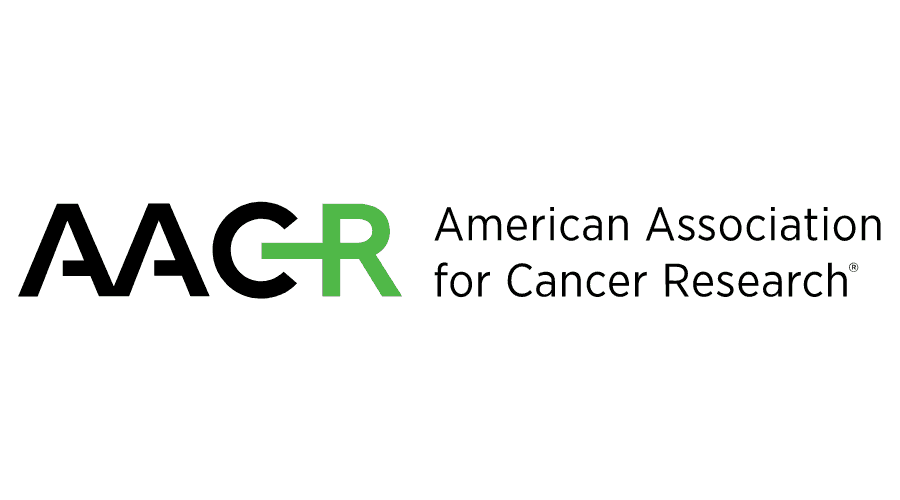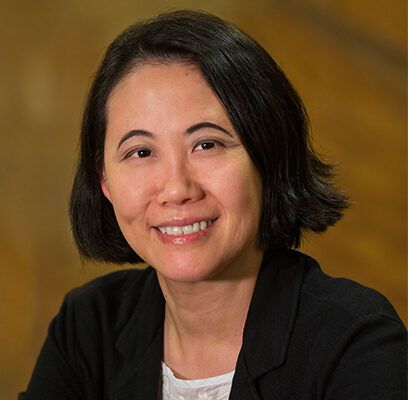- Center on Health Equity & Access
- Clinical
- Health Care Cost
- Health Care Delivery
- Insurance
- Policy
- Technology
- Value-Based Care
Science at AACR Aims to Overcome Cancer Care Barriers
A program cochair said the agenda was designed to get attendees "out of their comfort zone." The Amercian Association for Cancer Research annual meeting runs April 25-30, with the key presentations coming Sunday through Tuesday.
Can we target HER2 in lung cancer without the adverse effects of today’s drugs?
Can an immune checkpoint inhibitor spare more patients with cancer from invasive surgery?
Is an off-the-shelf chimeric antigen receptor (CAR) therapy ready for prime time?
Image: AACR

These are a few of the questions that will be explored over the next week as the American Association for Cancer Research (AACR) hosts its 2025 annual meeting in Chicago. After education sessions on Friday and Saturday, the meeting picks up steam Sunday through Tuesday with plenary sessions and late-breaking trials, which focus on basic research and early stage findings.
The meeting theme, “Unifying Cancer Science and Medicine: A Continuum of Innovation for Impact,” highlights the need to close the gap between breakthrough research and what patients encounter day to day. Thus, many of the featured studies seek to overcome today’s barriers, from the manufacturing delays of CAR T-cell therapy to the adverse events some patients with lung cancer experience when taking the antibody-drug conjugate (ADC) trastuzumab deruxtecan (Enhertu).
Matthew Vander Heiden, MD, PhD | Image: MIT

One of the program chairs, Matthew G. Vander Heiden, MD, PhD, director of the Koch Institute for Integrative Cancer Research at the Massachusetts Institute of Technology (MIT), told The American Journal of Managed Care® in an interview, “We tried to create a program for the 2025 AACR Annual Meeting that really covers the entire continuum from basic cancer discovery all the way through to translational research and clinical trials.”
Lillian Siu, MD | Image: Ontario Institute for Cancer Research

Fellow program chair Lillian L. Siu, MD, FAACR, of Princess Margaret Cancer Centre, said the breadth of topics was designed to get attendees “out of their comfort zone.”
Thorny issues, such as finding cancer at earlier stages, rates of depression among patients, and the rising cancer rates among young adults, will also be tackled in education sessions and some trials. Following are meeting highlights by day.
Friday and Saturday. Education sessions include Friday’s session on cell and gene therapy and Saturday’s session, “Rising Rates of Early-Onset Cancers: Understanding the Shift and Exploring Policy Solutions.“ A late plenary session Saturday explores links between metabolism and liver cancer and the human microbiome “as a diagnostic and treatment target in oncology.”
Sunday. Kevan Shokat, PhD, professor and chair, Department of Cellular and Molecular Pharmacology University of California San Francisco, credited with discovering the “pocket” in KRAS that allowed researchers to hit this “undruggable” target, will open the morning plenary session on the struggle to overcome that obstacle.
Clinical trial presentations will include the following:
- The abstract, “Nonoperative Management of Mismatch Repair Deficient Tumors,” will be presented by Andrea Cercek, MD, of Memorial Sloan Kettering Cancer Center (MSK). Cercek, a gastrointestinal oncologist, previously announced results that showed rectal cancer disappeared for patients receiving dostarlimab (Jemperli; GSK); in December, FDA granted the immunotherapy breakthrough designation.
- Thoracic oncologist Kathryn C. Arbour, MD, also of MSK, will present preliminary data on safety and antitumor activity for zoldonrasib, an oral, (RAS)ONG12D-selective tricomplex inhibitor, in patients with KRASG12D non–small cell lung cancer. Zoldonrasib is being developed by Revolution Medicines. Zoldonrasib previously showed antitumor activity in pancreatic cancer at the American Society of Clinical Oncology Gastrointestinal Cancers Symposium.
- Ravindra Uppaluri, MD, PhD, director of head and neck surgical oncology at Dana-Farber Cancer Center, will present data on KEYNOTE-689, which evaluated neoadjuvant and adjuvant pembrolizumab with standard of care in patients with locally advanced head and neck squamous cell carcinoma.
- Timothy Yap, MBBS, PhD, FRCP, of The University of Texas MD Anderson Cancer Center, will present data from KEYLINK-007, a tumor agnostic trial of the PARP inhibitor olaparib (Lynparza; AstraZeneca) with pembrolizumab in homologous recombination repair mutation and homologous recombination deficiency-positive advanced cancers.
- In the session on ADCs and immunooncology-focused biological approaches, Stephen A. Strickland, MD, MSCI, of SCRI TriStar Bone Marrow Transplant, Nashville, will present data on the first-in-human, multicenter study of SENTI-202, a CD33/FLT3 selective off-the-shelf logic gated CAR natural killer cell therapy in hematologic malignancies, including acute myeloid leukemia. Developed by Senti Bio, this treatment approach includes novel features to prevent off-target toxicities.
Monday. The showstopper promises to be Beamion LUNG-1, evaluating zongertinib in patients with pretreated HER2-mutant advanced NSCLC. Boehringer Ingelheim previously announced that FDA had granted this oral HER2-specific tyrosine kinase inhibitor (TKI) priority review, following a presentation in December that showed the therapy produced response in 71% of patients in the phase 1b study. So far, safety data for zongertinib have been highly favorable. John Heymach, MD, of MD Anderson, will present new data.
Other presentations include:
- Results for SKYSCRAPER-01 will be presented by Solange Peters, MD, PhD, professor and chair of medical oncology and thoracic malignancies at Centre Hospitalier Universitaire Vaudois in Lausanne, Switzerland. This phase 3 trial evaluated tiragolumab and atezolizumab vs atezolizumab and placebo in previously untreated patients with PD-L1 high, locally advanced unresectable metastatic NSCLC.
- At a session on liquid biopsy, Emma Titmuss, biomathematician for BC Cancer, will present preliminary results from VICTORI, involving detection of postsurgical minimal residual disease (MRD) in colorectal cancer.
Tuesday. This day is wall-to-wall with late breakers, including studies involving health care disparities and quality of life. Highlights include:
- A survivorship session featuring data on disparities by gender in cancer-related fatigue and depression, presented by Simo Du, MBBS, MPH, of Albert Einstein College of Medicine.
- New data on mortality trends in breast cancer, presented by Adetunji T. Toriola, MD, PhD, MPH, Washington University School of Medicine, St. Louis.
- Results on multicancer early detection using sequential blood-based methylated circulating tumor DNA tests from Harbinger Health.
- Evaluation of a prognostic marker for survival in cervical cancer, from the Deep South Consortium in Oncology.
- A late-breaking study, “Faith in Cancer Equity,” a community study to eliminate barriers to enrolling Black patients in clinical trials.
Quality of Life: The Pending Outcome in Idiopathic Pulmonary Fibrosis
February 6th 2026Because evidence gaps in idiopathic pulmonary fibrosis research hinder demonstration of antifibrotic therapies’ impact on patient quality of life (QOL), integrating validated health-related QOL measures into trials is urgently needed.
Read More
